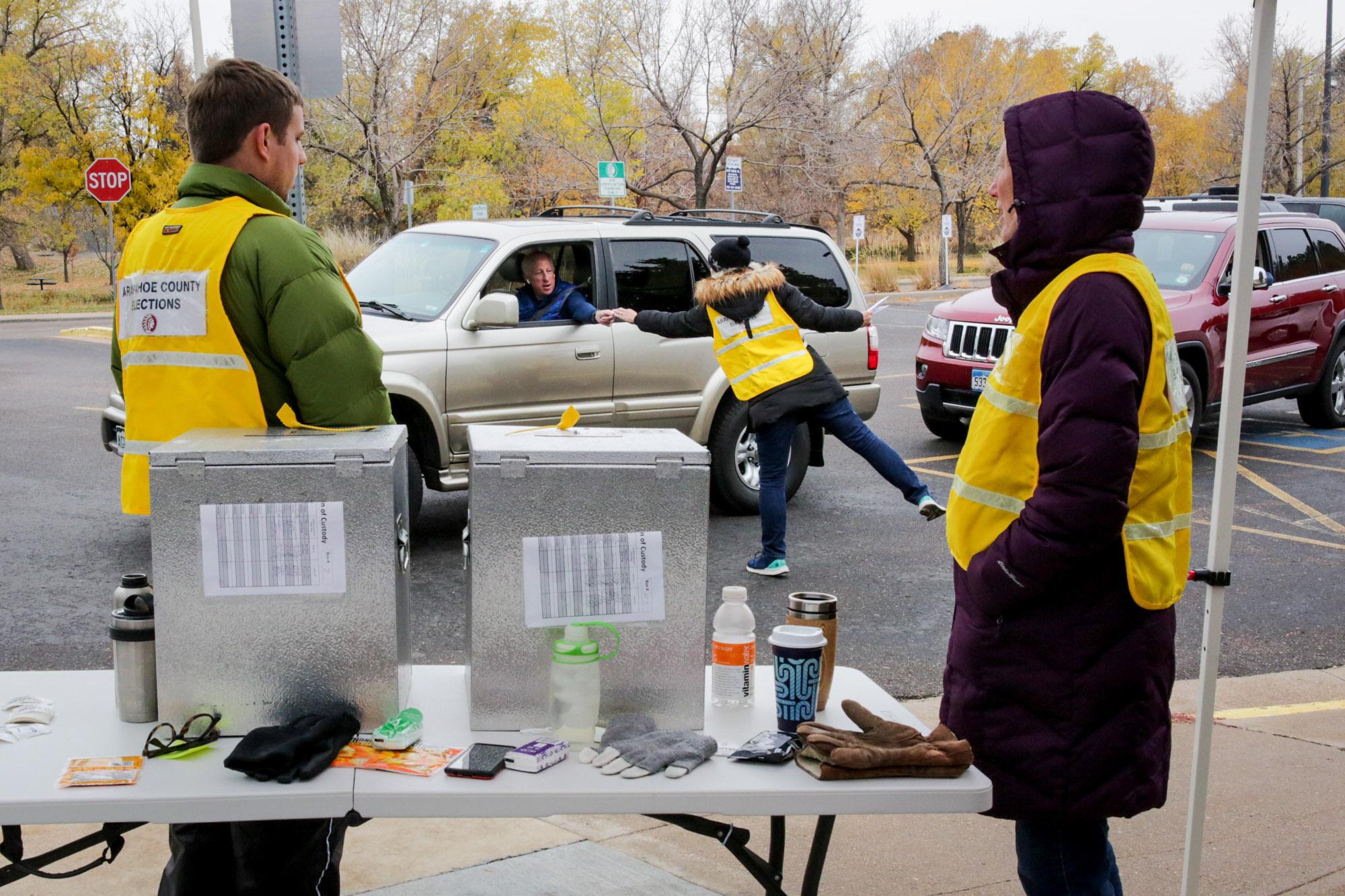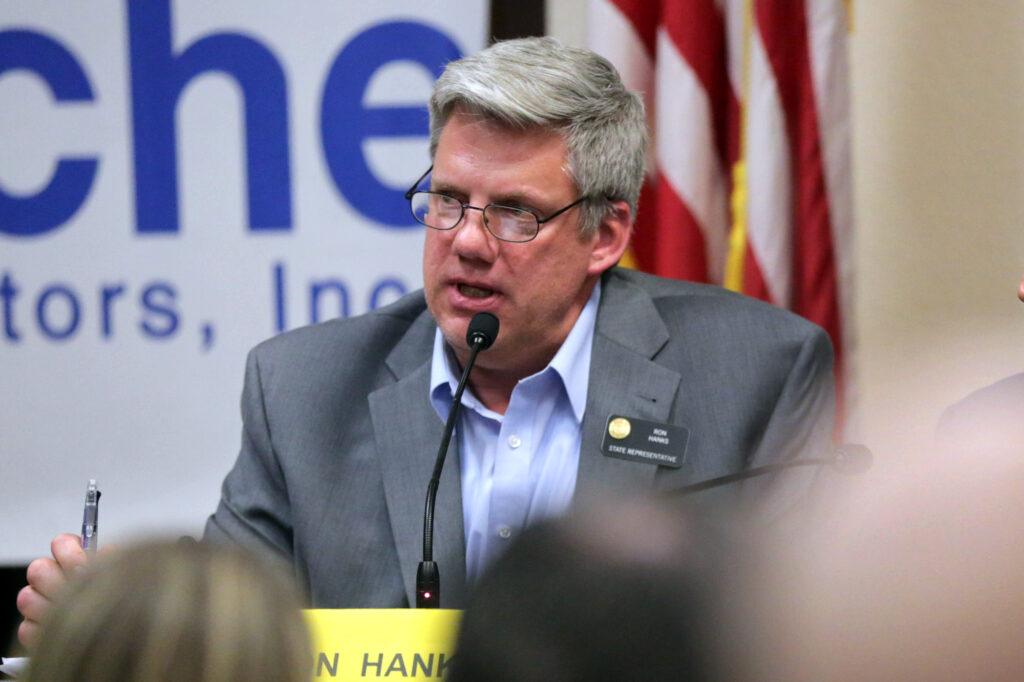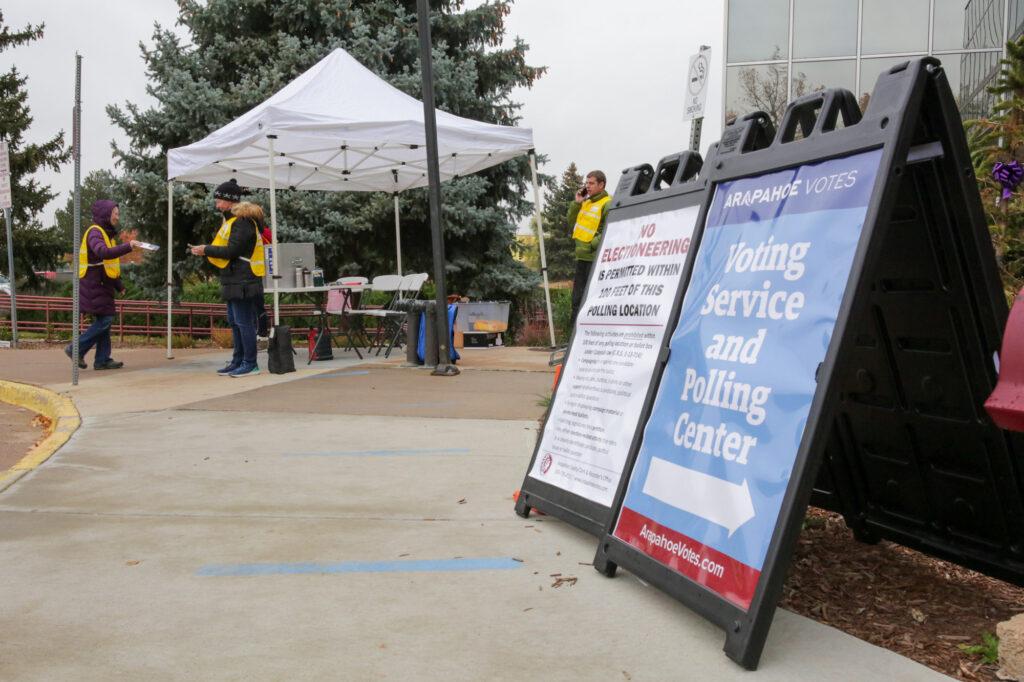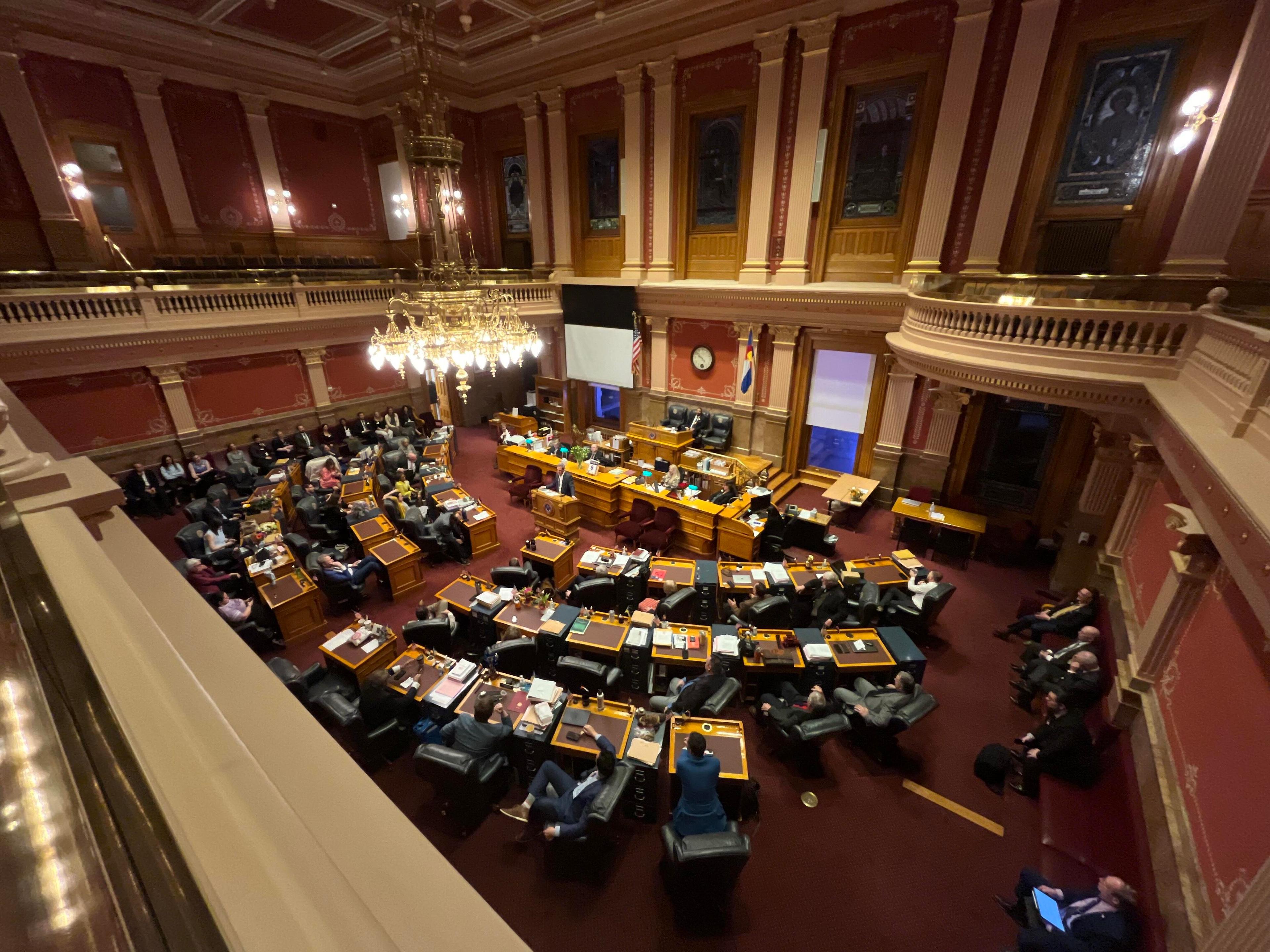
The national partisan divide over voting policies is playing out in the halls of Colorado’s capitol this legislative session, with Republican lawmakers introducing some of the same policies their colleagues in other states have adopted, or are considering.
Colorado lawmakers in both parties have introduced close to a dozen bills so far this year dealing with how elections are conducted: everything from new candidate reporting requirements to restricting firearms near voting locations to measures some Republicans claim are needed to fight potential fraud.
While many of Colorado’s Republican leaders, including lawmakers, local officials and state party officers, have said they believe the 2020 presidential election was legitimate and want to move on to other issues, some of the GOP election bills this session have brought the issue to the forefront.
In the House, Republican state Rep. Ron Hanks has led the way, as the main sponsor of two election-related bills. Hanks is running for U.S. Senate and has made claims of election fraud a central part of his campaign. At a recent candidate forum he asserted, falsely, that President Trump won in 2020.
Hanks’ bills include HB-1085, which would require counties to use what he referred to as “anti-counterfeit ballot paper” with “complex background design” and “ultraviolet and infrared wavelength inks.” Only one company makes the kind of paper that meets those criteria.
Nearly identical bills have been introduced in Arizona, Virginia, and North Dakota.

Rep. Hanks' proposed measure didn't go very far
Hanks alleged in the hearing for his bill that he had seen thousands of duplicate ballots when he went to Arizona for that state’s controversial election audit.
While the ‘Cyber Ninjas’ who conducted the audit did apparently search for signs of counterfeit ballots, their final report to the legislature did not contain any evidence that they found any. Claims of duplicate ballots in Arizona have been debunked.
“Our systems are not secure,” Hanks told the committee. “I think there's a good argument to be made that they can certainly be better and having ballots that can't be copied or counterfeited is a good step for American national security.”
Audits in Colorado, and hand counts in other states, have verified the accuracy of the 2020 election results.
Hanks’ measure was rejected after copious testimony from state and local election officials, who said it would make Colorado’s system less secure and “scuttle” an elections process that has won national praise.
“The major issues that I see are: timeframes, it's inadequate, (the) technology doesn't exist, ballot anonymity is destroyed, (and an) insufficient amount of vendors to provide paper,” said Fremont County Republican Clerk Justin Grantham who testified on behalf of the Colorado County Clerks Association.
One Republican lawmaker joined Democrats to defeat the measure.
A second, and even more sweeping election bill, from Hanks would do away with Colorado’s mail ballot system and require everyone to vote in person on Election Day. It’s awaiting its first committee hearing. Republican state lawmakers across the country have introduced bills to restrict or eliminate the use of mail-in ballots and early voting.

Republicans focus on voter rolls and election equipment, while Democrats look at guns at polling places
Hanks is not the only Republican lawmaker to introduce short-lived election bills this year.
The House State, Civic, Military, and Veterans Affairs Committee also voted down HB-1078 from state Rep. Mark Baisely. It would have required the state to only use election equipment that meets the standards of the federal Election Assistance Commission.
Opponents said it was unnecessary, and nonpartisan analysts found that some elements would be impossible to enact because there isn’t equipment available yet that meets the latest federal standard.
The committee aso rejected HB-1084, which would have required county clerks to automatically remove people from the voter rolls if they report being ineligible for jury duty because they aren’t a citizen or no longer live in the county, and HB-1045, which tried to make it more difficult for citizen-led ballot initiatives to get on the statewide ballot, by requiring backers to collect signatures in each of the state’s 35 senate districts.
Since Democrats control the state legislature, any bills from the GOP will need bipartisan support to move through the Capitol — something a few election bills have managed to do, at least so far.
Republican state Rep. Dave Williams and Democratic state Rep. Chris Kennedy have teamed up on HB-1044 to change the rules for how political parties select vacancy committee members when a political seat opens up. Another bipartisan bill, HB-1156, would change the deadlines for some campaign finance and personal financial disclosures.
While Democrats have pushed for major election reforms over the past decade — most notably spearheading the law that moved Colorado to an all-mail ballot state — this session is relatively quiet. The party’s biggest push so far is for the Vote Without Fear Act. It would prevent anyone from openly carrying a firearm within 100 feet of a voting location, unless their property falls within that buffer.
Supporters say the law is needed to prevent the harassment of voters and poll workers, arguing that the current intimidation law can be difficult to enforce.
“We have a long history of people being intimidated with firearms, and quite frankly, the people who intend to intimidate bring them for a reason because of how final the outcome could be,” said Democratic state Rep. Jennifer Bacon, one of the main sponsors.
Opponents argue that since Colorado is an open-carry state (with a few exceptions), the bill infringes on people’s Second Amendment rights. The measure is expected to pass the Democratic-controlled legislature.
A second Democratic bill also aims to increase security for people involved with elections. HB-1273 would make it a misdemeanor to threaten or intimidate state and local election workers for just doing their jobs.
Election officials around the country — and in Colorado — have reported increasing threats, especially connected to false theories that the 2020 election was stolen from president Trump. A number of states are moving to add or strengthen penalties for people who harass election workers.
Colorado’s bill would also make it illegal to publish election officials’ personal information publicly — a practice known as ‘doxxing’ — and allows those workers and their immediate families to remove their private information from open records requests. Lawmakers extended similar protections to public health workers last year.
Democrats are also pushing a bill this year that would limit individual donations in school board races to $2,500. Donations from small donor committees would also be limited to $25,000 per candidate. HB-1060 cleared the House on a party-line vote and will now be heard in the Senate.
Even though Democrats aren’t making many changes to Colorado’s voting laws this year, they did touch off passionate partisan debate early in the session with a resolution to support their party’s national push for new voting rights laws.
Editor's Note: This story has been updated to include information about HB-1273.








